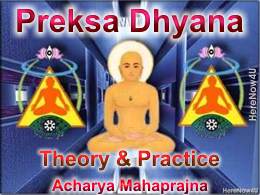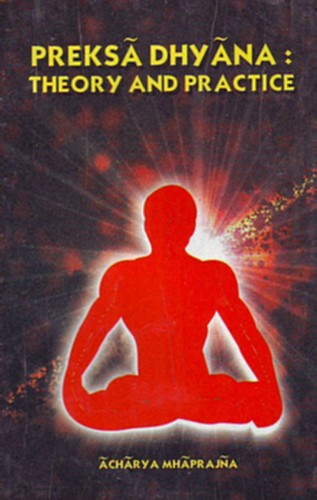
As we have seen, the first benefit from spiritual consciousness is a gentle and commendable way of life. The further benefit which accrues is that the person lives an enlightened life, and dies a glorious death. How can one die an enviable death, if his life has not been commendable and gentle? One who is deeply attached to life cannot die a praiseworthy death and one who is afraid of death cannot live an enlightened life. To live an enlightened life, it is essential to be free from the fear of death and to minimize the attachment to life. Both these can be achieved by the practice of meditation and the resulting spiritual consciousness. The practitioner attains such a high level of spiritual consciousness, that life and death are both experienced as transient phases.
Spiritual consciousness destroys stupor. It will bring forth two benefits: attitudinal change and behavioural modification. It is the only tool which can affect both these personality factors and develop an integrated personality.
The state of spiritual consciousness cannot be properly comprehended until we know the doctrine of lesya If one wants to practise meditation, desires spiritual progress and development, and is anxious to solve problems by applied spiritualism, one must liberate or expand one's consciousness. Liberation or expansion here means to free the consciousness from the shackles of attachment to the material world. It is one thing to make use of material conveniences, but quite a different thing to be bound to them. Even when the attachment is broken, the use will continue, but the infatuation vanishes. For instance, one has to eat to nourish oneself, but to crave for tasty, spicy food amounts to attachment and bondage. A practitioner of meditation does eat and drink and possess assets. All these are means of fulfilling the necessities of life. Meditation does not enjoin one to starve or abandon necessities. As long as there is life, one cannot but utilize all the facilities and conveniences, nor does spiritual life mean abandoning them. What is to be abandoned is the deep attachment to the material objects. A practitioner does not become enslaved or entrapped by the material objects. Thus, the main result of the spiritual awareness is that the utility remains, but the attachment and infatuation are abandoned. The spiritual consciousness resulting from the regular practice of meditation softens and smoothens one's path of life by removing confusion and complication there from. His guileless behaviour makes-his life free from deceitful-ness and cunning.
 Acharya Mahaprajna
Acharya Mahaprajna

